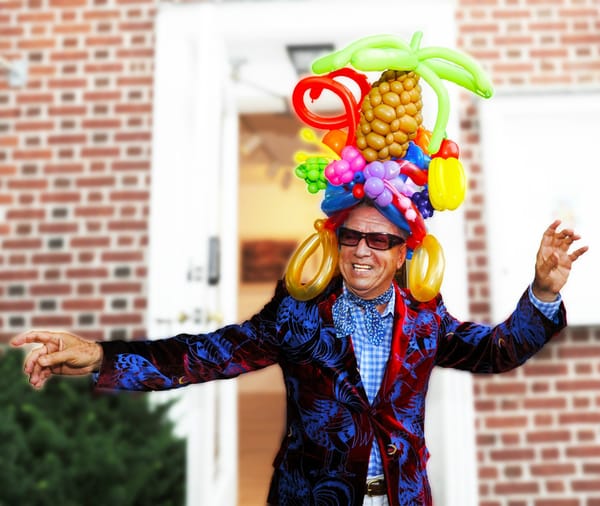The Rural We: Abdo Ballester
"The Mojito King" founded the United Nations' International Criminal Court.

"The Mojito King" founded the United Nations' International Criminal Court.

You may know him as “The Mojito King” and the founder of Washington Art Association’s annual Summer Solstice fundraiser, but Litchfield County resident Abdo Ballester wears many other hats besides a Carmen Miranda-inspired balloon crown. Ballester was instrumental in founding the United Nations’ International Criminal Court, is a trustee of the Cuban Artist Fund in New York City, and is the retail manager for The Mayflower Inn and Spa in Washington, Conn. The Cuban-born Ballester will share firsthand insights of what life was like before, during and after The Cuban Revolution — which overthrew the government of Fulgencio Batista in 1959 and installed its leader, Fidel Castro — in a talk at Gunn Memorial Library on Tuesday, June 11 at 6:30 p.m. You also can find him benevolently ruling over his mojito kingdom at the Summer Solstice benefit for WAA on June 22.
I’ve lived in Washington for 20 years now, before that I lived in Santa Barbara, Boston and Europe. I came to the U.S. in 1957, as a teenager, to go to boarding school. In those days, people would embrace you. I’m still in touch with people who helped me; they’re like steps on the ladder that made me who I am today. That’s why I’m eternally grateful to this country.
As a kid, I never thought we should have passports, because it’s our world. I became very anti-dictator. They have a philosophy — Mussolini, Franco, Castro — they all make promises to the middle and lower classes and they never deliver. Their theme is to divide and rule. You want to conquer the press — that was the first thing Fidel did — so you can lie to the people. Then you divide them. For Fidel, he had an ego, ‘I’m going to solve all the problems with Cuba’ without any plans. Agrarian reform failed. They confiscated all of our land, but nothing worked because you need to know how to plant. People in Cuba haven’t voted in 55 years.
I was a UN rep for 25 years, where I worked giving a mandate to implement a permanent International Criminal Court. Then it became a reality. ICC tries individuals who commit major violations, crimes against humanity, crimes against peace, violations of human rights. I was thinking of what I went through in Cuba and what other people go through throughout the world. I wanted to put a little grain in the world in the hope of having more peace. If nothing else, it can be a deterrent for violators.
The idea for [the WAA Summer Solstice fundraiser] came about because, growing up in Cuba, I remember carnival time. It was such a happy occasion, where rich and poor would mingle, we’d conga and each park would have orchestras and bands, and dancing in the clubs. I wanted to see more of that, so when the occasion came up 11 years ago as a board member of WAA, I thought, ‘I can recreate again what was cut off from my life as a result of the revolution.’
At the beginning, people were sort of shy, but I brought these Brazilian women who’d do the show, all you’d see is feathers and flesh and that was shocking to some. And now we have a following; I feel I’ve awakened some of the Yankees. The mojitos help. I make them a little stronger every year and then you see there’s a conga line on the dance floor. I feel this satisfaction that I continue a tradition as much as I can. The joie de vivre of the Latin culture, we have it in our blood. I’ll be completely sober, and I’ll hear music and start dancing.
I’ve had a fabulous life, no complaints. When you live around the world, you see the humanity, people cry like we cry and laugh like we laugh, all aspirations are similar, all over the world. The UN experience helped to make me who I am today. It’s hard because, for me, exile liberated me, made me free. But most people don’t want to leave their own country if their country observes human rights and is good to them. I like to read Mark Twain because he had a great sense of humor, and I love his quote: “Travel is fatal to prejudice, bigotry and narrow-mindedness, and many of our people need it sorely on these accounts. Broad, wholesome, charitable views of men and things cannot be acquired by vegetating in one little corner of the earth all one's lifetime.”